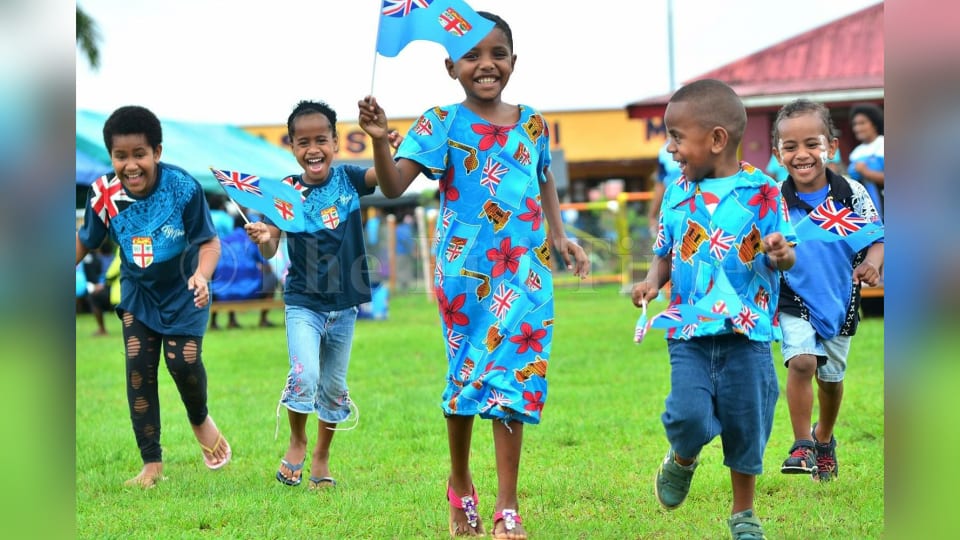Fifty one years ago Fiji gained Independence a reminder on how far we have come as a strong and united nation.
No day is more significant than October 10 when we celebrate the signing of the declaration of independence that proclaimed to the world our separation from Great Britain and our emergence as a new sovereign nation.
It was on October 10, 1970, when His Royal Highness Prince Charles handed over the Constitutional Instruments to the late and former Prime Minister Ratu Sir Kamisese Mara at Albert Park in Suva.
That saw the end of Fiji’s colonial period under British rule and the dawn of a new era. This year’s theme is “Togetherness for a sustainable Fiji”.
Prime Minister Voreqe Bainimarama dedicates this year’s celebration to a National Prayer Day.
On Thursday, September 17, 1970 this newspaper published an article on the heir apparent following the footsteps of his great-grandfather, the late King George V who had visited Levuka earlier in 1881.
Prince Charles was to be the second member of the royal family to visit the Old Capital. During the late King George V’s visit (then Prince George) to Levuka he was accompanied by Prince Albert Victor and they were the first members of the British Royal Family to tour the old capital.
During Prince George’s visit he played cricket on a ground known as Raratabu at Vagadaci, which later became a government housing estate.
In the team which played with Prince George was a former member of Legislative Council, the late Charles Wimbledon Thomas, the father of the public workers supervisor at Levuka, George Thomas. The Prince of Wales was to visit Vagadaci too.
Levuka’s independence celebrations committee had considered lighting a bonfire as part of the festivities.
A committee member E. Kaad said plans were not definite, but the committee had discussed putting a bonfire on the peak behind the town.
“Fire would take a stack of timber piled 10ft to 15ft high, soaked with 10 with 12 gallons of diesel fuel and would burn two or three hours,” he said.
The bonfire was to be lit on October 9 to October 10.
Celebrations to mark Fiji’s independence were also going ahead in Britain, India, Australia, Canada, New Zealand, the British Solomon Islands and the New Hebrides now Vanuatu.
In Britain, Fiji students and other groups had formed a joint committee for the celebrations. The functions were held at the Royal Lancaster Hotel where Fiji’s newly appointed representative in London, Josua Rabukawaqa was the main speaker.
The program included a dinner, speeches, reading of messages from Fiji, a cabaret and dancing. About 500 people attended.
This newspaper reported that in Australia, the Fijian Australian Association of Victoria had a celebration and a Richmond, British Columbia, Canada, the army, navy and air force veteran’s club arranged the program.
In New Zealand the celebrations were organised by the Fiji Student’s Association in Wellington and the Fiji Students’ Association at Otago University.
Students in India planned celebrations in Delhi, Chandigarh, Ahmedabad and Madras.
Prominent citizens in India, foreign diplomats and other distinguished guests had been invited to a Fijian Night which the Fiji Students’ Club held in Delhi.
The program included a flag ceremony, cultural programs and a mini exhibition.
Two Fiji groups in the Solomons celebrated independence too – one in Honiara and the other at Gizo.
Fijians at Santo in the New Hebrides planned a big magiti to mark independence.
For Fijians around the world, October 10 is always a day of festivity and is celebrated in a big way.



